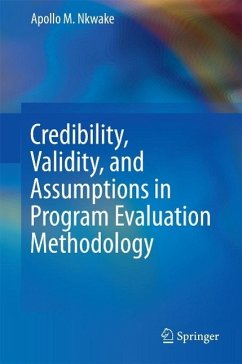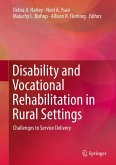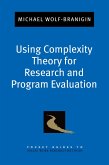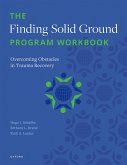Though the selection of appropriate research methodology is not a new topic within social development research, previous publications suggest only advantages and disadvantages of using various methods and when to use them. This book goes beyond other publications to analyze the assumptions underlying actual methodological choices in evaluation studies and how these eventually influence evaluation quality. The analysis offered is supported by a collation of assumptions collected from a case study of 34 evaluations. Due to its in-depth analysis, strong theoretical basis, and practice examples, Credibility, Validity and Assumptions in Program Evaluation Methodology, is a must-have resource for researchers, students, university professors, and practitioners in program evaluation. Importantly, it provides tools for the application of appropriate research methods in program evaluation.
Dieser Download kann aus rechtlichen Gründen nur mit Rechnungsadresse in A, B, BG, CY, CZ, D, DK, EW, E, FIN, F, GR, HR, H, IRL, I, LT, L, LR, M, NL, PL, P, R, S, SLO, SK ausgeliefert werden.









